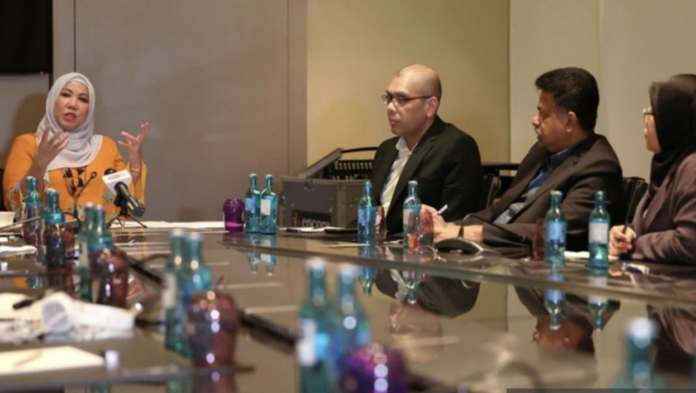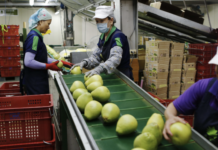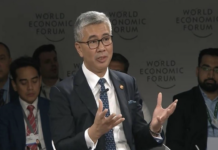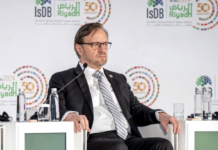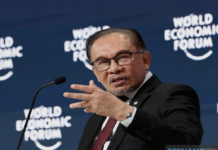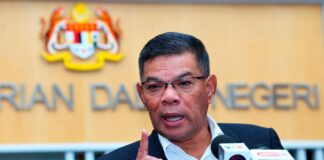BERLIN, March 10 – Malaysia will be looking at enhancing its bilateral and business ties with Germany, its largest trading partner among European Union members when Prime Minister Datuk Seri Anwar Ibrahim undertakes a six-day visit to the country.
Malaysian Ambassador to Germany, Datin Paduka Dr Adina Kamarudin said Anwar will be holding a bilateral meeting with his German counterpart, Chancellor Olaf Scholz besides paying a courtesy call to President Frank-Walter Steinmeier.
“Prime Minister Anwar is expected to discuss various bilateral and global issues during his meetings with the two German leaders,” she said at a press conference with Malaysian media covering the premier’s visit here.
President Steinmeier made a state visit to Malaysia from Feb 16 to 19 last year, where he also visited two of Germany’s largest investors in Malaysia — manufacturer of semiconductors Infineon and medical technology specialist B. Braun.
During the visit, Steinmeier had said that Malaysia would be an important location for German companies to diversify their businesses and investments, adding that there are over 700 German companies there now, creating 65,000 jobs.
According to Dr Adina, Anwar, who is expected to arrive here at 10pm Sunday (5am Monday), will meet top industry leaders at six meetings and engagements, most of them are the country’s top small and medium-sized enterprises (SMEs) which are the backbone of Germany’s economy.
On Monday, Anwar will kick off his visit by visiting the Siemens Energy plant in Huttenstrabe, said Dr Adina, adding that the company which had invested heavily in Malaysia is currently focusing on renewal energy.
Siemens Energy produces renewable energy from sun, wind, water and biomass, and the key player in the country’s energy transition employs about 26,000 workers.
On Tuesday, Anwar will meet about 30 captains of industry and potential investors from Europe at a business roundtable meeting.
“German companies continuously looking at Malaysia because of the various incentives offered, especially the customised tax incentives and the supporting role played by our agencies like the Malaysia Investment Development Authority or MIDA.
“They are very comfortable with our One Stop Centre… the ease of doing business with agencies like MIDA, Immigration Department providing the necessary support, as well as the English speaking population,” she said.
Dr Adina said issues like Malaysia’s palm oil export to Europe and climate change are likely to be brought up during Anwar’s meeting with Deputy Chancellor and Minister for Economic Affairs and Climate Action Robert Habeck before the premier delivers a keynote address at “Mittelstand or SME Future Day” on Wednesday.
There are 3.2 million small and medium-sized enterprises (SMEs) in Germany, employing 56 per cent of the more than 38.4 million employees in 2021.
Anwar will also meet the Malaysian diaspora before attending prayers and Tarawih at Sehitlik Mosque during his stay in the capital.
While in Berlin, the Prime Minister will have a speaking engagement at Körber Foundation, a non-profit organisation focusing on social and political issues.
Anwar will also visit Hamburg to attend the 101st East Asia Friendship Dinner (Ostasiatisches Liebesmahl) hosted by the German Asia-Pacific Business Association, where he is scheduled to deliver an address.
Dr Adina said due to the Ukraine war which has affected Germany, especially the availability of cheap gas, the country is now looking at South East Asia to diversify its business.
During the visit, the premier will be accompanied by Foreign Minister Datuk Seri Mohamad Hasan, Investment, Trade and Industry Minister Tengku Datuk Seri Zafrul Tengku Abdul Aziz and Entrepreneur and Cooperatives Development Minister Datuk Ewon Benedick.
Germany has been Malaysia’s largest trading partner among EU member countries since 2000, while Malaysia is the largest trading partner for Germany among ASEAN member states.
In 2023, Malaysia’s total trade with Germany increased by 5.9 per cent to RM63.45 billion (US$13.90 billion) as compared to RM59.87 billion (US$13.62 billion) in 2022.




